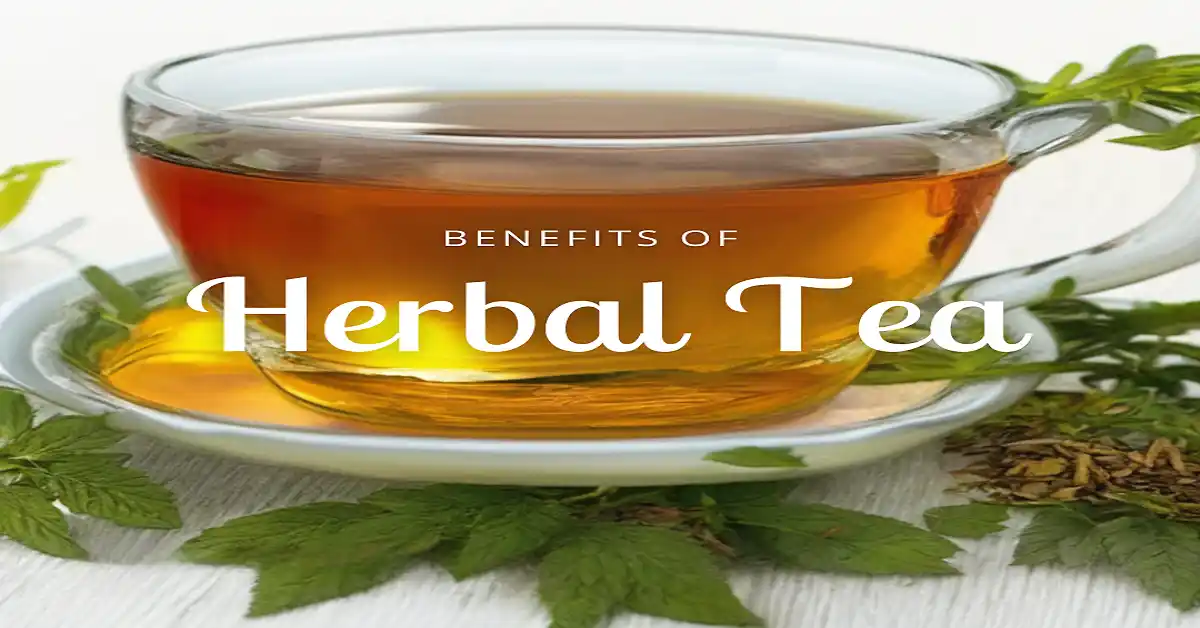Herbal tea has been used for various health conditions as a natural remedy for centuries. Packed with essential nutrients and medicinal properties, herbal teas offer a refreshing and soothing way to improve overall well-being. In this blog, we will explore the numerous health benefits of herbal tea, providing you with a comprehensive guide to harnessing the power of nature in your daily cup.
Table of Contents
What is Herbal Tea?
The Nutritional Composition of Herbal Tea
Top Health Benefits of Herbal Tea
3.1. Improved Digestion
3.2. Enhanced Immune System
3.3. Stress Reduction and Relaxation
3.4. Weight Management
3.5. Better Sleep Quality
3.6. Antioxidant Support
3.7. Reduced Inflammation
A Variety of Herbal Teas and Their Health Benefits
4.1. Chamomile Tea
4.2. Peppermint Tea
4.3. Ginger Tea
4.4. Rooibos Tea
4.5. Echinacea Tea
4.6. Lavender Tea
Brewing the Perfect Cup of Herbal Tea
Safety Precautions and Considerations
Conclusion
Frequently Asked Questions (FAQs)
What is Herbal Tea?
Herbal tea, also known as tisane, is an infusion made from the leaves, flowers, seeds, or roots of various plants. Unlike traditional tea, which comes from the Camellia sinensis plant, herbal teas are caffeine-free, making them an excellent alternative for those looking to reduce their caffeine intake.
The Nutritional Composition of Herbal Tea
Herbal teas are rich in vitamins, minerals, and antioxidants, making them an excellent addition to a balanced diet. Depending on the type of herbs used, herbal teas can contain essential nutrients such as vitamins C, A, and K, as well as minerals like calcium, magnesium, and iron.
Top Health Benefits of Herbal Tea:
3.1. Improved Digestion
Herbal teas like peppermint and ginger are renowned for their digestive benefits. They can alleviate indigestion, bloating, and stomach cramps, promoting a healthy gut and smooth digestion.
3.2. Enhanced Immune System
Many herbal teas, such as echinacea, are known for their immune-boosting properties. Regular consumption of these teas can help strengthen your body’s natural defense mechanisms, reducing the risk of infections.
3.3. Stress Reduction and Relaxation
Chamomile tea and lavender tea are well-known for their calming effects. They can help reduce stress, anxiety, and promote relaxation, making them an ideal beverage before bedtime.
3.4. Weight Management
Herbal teas like green tea have been associated with supporting weight management. They can boost metabolism and assist in burning fat, aiding those on a weight loss journey.
3.5. Better Sleep Quality
Certain herbal teas, like valerian root tea, have sedative properties that promote better sleep quality. Incorporating these teas into your bedtime routine can help combat insomnia and improve sleep patterns.
3.6. Antioxidant Support
Herbal teas are a rich source of antioxidants that combat oxidative stress and protect your cells from damage caused by free radicals. Incorporating Antioxidants into Your Diet for Enhanced Well-being and Lowering the Risk of Chronic Illness
3.7. Reduced Inflammation
Ginger and turmeric teas are potent anti-inflammatory beverages. Regular consumption can help reduce inflammation in the body, potentially benefiting those with conditions like arthritis.
A Variety of Herbal Teas and Their Health Benefits:
4.1. Chamomile Tea
Chamomile tea is celebrated for its calming effects, making it an excellent choice for stress relief and better sleep. It can also soothe stomach discomfort and menstrual cramps.
4.2. Peppermint Tea
Peppermint tea aids digestion, relieves headaches, and provides relief from nasal congestion. Its refreshing taste makes it a popular choice for both hot and cold beverages.
4.3. Ginger Tea
Ginger tea is a natural remedy for nausea, indigestion, and motion sickness. Its warming properties can also promote blood circulation.
4.4. Rooibos Tea
Rooibos tea is rich in antioxidants and can contribute to healthier skin and improved heart health. It is also caffeine-free, making it a safe option for children and pregnant women.
4.5. Echinacea Tea
Echinacea tea boosts the immune system and can help shorten the duration of the common cold and flu.
4.6. Lavender Tea
Lavender tea has calming effects, reduces anxiety, and aids in relaxation. It is also known to promote better sleep quality.
Brewing the Perfect Cup of Herbal Tea
Brewing herbal tea requires proper technique to extract the maximum benefits from the herbs. Follow these simple steps to make a delicious cup of herbal tea:
Boil water and let it cool slightly.
Add 1-2 teaspoons of dried herbs or a tea bag to your cup.
Pour the hot water over the herbs.
Let it steep for 5-10 minutes, depending on the type of herbal tea.
Strain the tea and enjoy!
Safety Precautions and Considerations:
While herbal teas offer numerous health benefits, it’s essential to use them responsibly. Some herbal teas may interact with certain medications or have adverse effects on pregnant and breastfeeding women. Always consult with a healthcare professional before incorporating herbal teas into your routine, especially if you have any underlying health conditions or concerns.
Conclusion
Incorporating herbal tea into your daily routine can be a delightful and health-boosting experience. From improved digestion to enhanced immune function and relaxation, the health benefits of herbal tea are numerous and varied. Remember to choose the right type of herbal tea that suits your needs and consult with a healthcare professional if you have any concerns. Enjoy the natural goodness of herbal tea and take a step towards a healthier, more balanced lifestyle. Cheers to your well-being!
Frequently Asked Questions (FAQs):
1. Is herbal tea safe for children?
Herbal teas are generally safe for children but should be given in moderation. Avoid giving children herbal teas with caffeine or herbs that may cause allergic reactions.
2. Can I drink herbal tea during pregnancy?
While some herbal teas are safe during pregnancy, others may not be suitable. Consult your doctor to determine which herbal teas are safe for you and your baby.
3. How many cups of herbal tea should I drink per day?
It’s recommended to limit herbal tea consumption to 2-3 cups per day to avoid excessive intake of certain compounds.
4. Can herbal tea cure illnesses?
Herbal teas can support overall health and provide relief from certain symptoms, but they should not be considered a cure for illnesses. Always seek proper medical treatment when needed.




